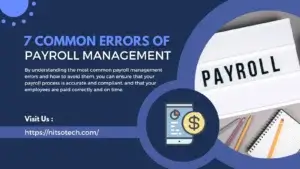While filing income tax returns, are you confident you’re maximizing your deductions, or could you be unknowingly making mistakes that may cost you?
Filing income tax returns can be confusing with all the forms, schedules, deductions, and calculations required. It is common for taxpayers in India to end up making mistakes when claiming tax deductions that later caught the attention of the Income Tax Department. Even minor errors, omissions or inaccurate claims can land your return in the examination process leading to tax notices, penalties, and demands for outstanding tax payments.
The key reason is the failure to properly understand and report the plethora of available tax deductions under different sections of the Income Tax Act. Deductions help reduce tax liability but need proper documentation and calculations to back them up in case of an income tax audit or inquiry. Common issues like calculation errors, insufficient documents for claimed deductions, and claiming an exemption for investments or expenses not covered under tax laws usually lead to inspection, questions, and demands for additional tax payments plus interest by the taxman.
For instance, a large number of people invest money in tax-saving instruments like Public Provident Fund (PPF), ELSS mutual funds, life insurance premiums, etc. near the end of the financial year to claim Section 80C deductions. However, many taxpayers end up reporting the wrong amounts or making data entry errors that don’t match with the investment documents later submitted. Others make mistakes like claiming deductions for personal medical expenses under section 80DDB which are actually not allowed.
Such issues unnecessarily flag the income tax return for further verification and hardship for taxpayers. The way to avoid this is by having complete clarity about deduction rules, maintaining proper documentation, accurately calculating eligible amounts, and double-checking all details before filing ITR.
Table of Contents
Common Mistakes When Claiming Tax Deductions That Will Make You Pay
Mistake 1: Not Keeping Adequate Records for Tax Deductions
One of the biggest mistakes many Indian taxpayers make is failing to keep proper documentation and records for the deductions they claim in their ITR. The Income Tax Department clearly requires you to maintain all supporting documents, files, receipts, bills, invoices, bank statements, and certificates for any deduction reported under Sections 80EE, 80D, 80C, 80TTA etc. However, most people do not keep systematic records leading to major issues.
For instance, Rajesh decided to claim ₹90,000 in Section 80C deductions for the FY 2022-23 including ₹20,000 paid as life insurance premium, ₹30,000 in ELSS Mutual funds, ₹20,000 in PPF contributions and ₹20,000 principal portions of home loan EMI. But he thought his memory would be enough to recollect all the expense details and did not bother keeping proper documentation.
Unfortunately, Rajesh received an income tax notice under section 143(1) asking him to provide supporting documents for all the deductions he had claimed within 30 days. Not having the necessary invoices, receipts, and statements, Rajesh ended up losing deductions worth ₹35,000 as he could not substantiate those claims without evidence. Worse, his case was selected for full inspection leading to fines and 20% higher tax plus interest payment demands despite taking genuine deductions as he had no documents to prove the authenticity and accuracy.
Therefore, it is critical for taxpayers to:
- Maintain an organized file folder with sub-sections to store investment proofs, donation receipts, medical bills etc. Ensure documents include official revenue stamps where applicable.
- Retain physical and digital copies of supporting papers to produce whenever required during a tax audit or verification.
- Have bank statements highlighting relevant entries/charges available for matching with claimed deduction amounts
- Keep a diligent record of documents right from the start rather than scrambling later if the inspection notice arrives
Accurately computing investments, expenses and deductions plus having all documentation in one place minimizes tax liability and protects you from penalties if questioned by the IT department. So save time, effort and money by backing up everything diligently!
Mistake 2: Claiming Personal Expenses as Business Deductions
Another common mistake taxpayers in India make is trying to wrongly claim personal spending and expenses as tax-deductible business expenditures or deductions.
For example, Sanjay had a side business consulting gig besides his regular job. While filing taxes, he not only included all legitimate business expenses like internet charges, phone bills and travel costs in his tax calculations. He also claimed deductions for many personal expenses like movie tickets, video streaming subscriptions, household utility payments, EMI on a personal loan, and even the family vacation abroad!
Sanjay assumed that since he uses the same assets like phone, internet and laptop for his consulting assignments, the overall expense can be filed under business deductions. He also thought foreign travel spending could be adjusted against business income by showing them as customer meetings or marketing expenses.
However, the Income Tax Department has very clear guidelines on what is considered an eligible business expense versus purely personal expenditure as per Section 37(1). Any spending on goods or services that are not directly used for trade, commerce, or manufacturing business cannot be claimed under deductions. Only reasonable expenses can be claimed after appropriately segregating the % of expenses attributable to business use with sufficient documentation.
So in Sanjay’s case, his behaviour invited tax inspection with heavy fines plus a 200% penalty on the amounts wrongly claimed as deductions. This also badly impacted his future credibility with tax authorities even for legitimate business expense deductions every year.
Taxpayers must therefore be careful in identifying what constitutes allowable and non-allowable expenses as per latest ITR norms before making deduction claims. Seek professional advice whenever unsure instead of making inaccurate assumptions. Maintain separate accounts and clear audit trails for personal versus business spending. Erroneous claims almost always lead to serious consequences later. So make diligent classification of expenses under the correct categories.
Mistake 3: Errors in Itemizing and Reporting Deductions on Tax Forms
Another area where many taxpayers fall short is accurately itemizing and declaring their eligible deductions in the appropriate sections of the ITR and attached forms. Even if you have kept all the paperwork and computed deduction amounts correctly, simple reporting errors can still cause problems with the tax authorities.
For example, Radhika made capital gains of ₹2 lakhs on selling some shares she had invested in. To offset this taxable income, she decided to claim deductions by filing ITR-2 and reporting expenses under various sections like 80C, 80D and Chapter VI-A. However, she ended up making some common errors:
- She claimed ₹50,000 paid as a life insurance premium under the 80C section. However, only the savings portion qualifies for the deduction, not the full premium amount, leading to a higher claim.
- She included ₹12,000 spent on preventive health checkups under the 80D deduction instead of submitting the Medical Expenses form along with bills.
- The computation sheet did not provide a detailed breakup of different amounts being claimed under respective sections.
Later Radhika got an intimation notice under Section 143(1) asking for clarification on all deductions taken as the amounts reported did not add up. On review, she realized the reporting mistakes such as:
- Wrong sections were chosen for a few deduction claims
- No Form 10 for HRA claim submitted
- Mismatch in deduction amounts total and breakup
- The capital gains section is not adequately explained
fortunately, she had kept all the invoices as proof. But she had to again put in a major effort to correct her returns including paying misc charges for refiling.
Taxpayers must therefore be very careful in accurately capturing all deduction details section-wise in the ITR correctly referring to respective sub-sections of relevant forms. Seeking expert help can ensure claiming legitimacy without reporting errors. Rectification later means additional paperwork, costs and stress with the Income Tax department querying you frequently. So double-check your tax returns diligently before submission.
Mistake 4: Failing to Claim All Eligible Tax Deductions
Another mistake seen commonly amongst individual taxpayers is missing out on tax deductions that they were entitled to claim but did not take benefit of. India’s Income Tax Act under Sections 80C to 80U has various provisions offering breaks for expenses incurred towards investments, housing loans, medical insurance and critical illness treatment, education loans and tuition fees, rents paid etc. However, a surprising number of taxpayers are unaware of all deductions they can legitimately claim to reduce their tax liability.
For example, Aditi paid ₹1.2 lakhs in home loan EMIs last financial year as well as ₹35,000 towards health insurance premiums for parents. But while filing ITR, she only claimed ₹1.5 lakh under Section 80C. She did not realize that home loan principal can also be claimed u/s 24 up to ₹2 lakh. And health insurance premium for senior citizen parents is eligible for an additional ₹50,000 deduction u/s 80D.
Thus Aditi lost out on deductions worth approximately ₹60,000 which could have brought down her tax outgo significantly. Like her, many salaried individuals miss out on deductions for expenses like medical bills of dependent parents, tuition fees of children, paying higher rent for metro cities etc. allowed over and above the standard 80C and 80D break.
The problem arises because taxpayers are unaware, confused or casual about thoroughly researching and claiming available tax deductions. They end up paying higher taxes than required despite having eligible expenses for legitimate deductions. Using the services of a CA or tax expert can help identify precise deduction options. However, individuals must also proactively keep track of all family expenses during the year to efficiently utilize all applicable tax breaks legally permitted under the Income Tax Act.
So remain updated on deduction eligibility rules, keep accurate records of expenses, and ensure you claim all available rebates by cross-checking Form 16, payslips, receipts and paperwork before ITR filing. This small effort can save thousands in avoided taxes!
Mistake 5: Mathematical and Reporting Errors in Calculating Deduction Amounts
The final common challenge that trips up many well-intentioned taxpayers is making inadvertent mathematical or data entry errors when calculating and reporting actual amounts eligible for various deductions.
For instance, Mr. Rajan made a total of ₹1.8 lakhs in payments last year comprising ₹1.2 lakh as home loan principal, ₹30,000 in PPF contributions, ₹20,000 in life insurance premium and ₹30,000 in NPS investments. He had kept all the receipts and necessary documentation in anticipation of claiming deductions under Sections 80C, 80CCD(1) etc.
However, when actually tallying up deduction amounts from paperwork before ITR filing, Rajan made small but costly slip-ups:
- He miscalculated the interest portion and erroneously claimed the entire home loan EMI as principal deduction u/s 24 – leading to an excess claim.
- He transposed digits and claimed NPS deduction as ₹13,000 instead of ₹30,000 u/s 80CCD(1)
- The total 80C deductions amount was added up inaccurately
Despite documentation being accurate, wrong manual computations and data entry errors resulted in flagging by the tax department and rework requirements.
This was an innocent mistake by Rajan without wrong intent. However, the Income Tax department checks for mismatches in claimed deduction amounts and documentary proofs during return review. Even minor mathematical errors must be strictly avoided else additional tax plus interest and penalties may apply on amounts incorrectly claimed.
While summing up multitudes of transactions, deductions and investment details, it becomes easy to miscalculate amounts or make data errors that will create tax headaches later. Some best practices include:
- Maintain diligent Excel sheets of figures to minimize faulty math
- Use trusted tools or calculators to accurately compute deduction amounts
- Always double-check amounts keyed in ITR with paperwork
- Get CA assistance with tallying to identify/fix errors pre-filing
Being disciplined, focused and meticulous with number crunching is key to claiming precise tax deduction amounts flawlessly.
Conclusion to Avoid Common Errors and Maximize Tax Deductions Legally
Claiming tax deductions is an effective way for Indian taxpayers to lower their annual tax liability and maximize savings from hard-earned income. However, even diligent individuals tend to make errors by – insufficient documentation, inaccurate calculations, missing out on lesser-known rebates or reporting mistakes that attract inspection from the Income Tax Department.
This ends up not just eroding the tax benefits but also requires substantial time, effort and often financial penalties for rework, questioning and providing clarifications during assessments. The solution lies in enhancing awareness of deduction eligibility rules, maintaining thorough records of relevant expenses, carefully computing permitted deduction amounts and double-checking ITR details before submission.
With numerous valid tax breaks available under various sections of the Income Tax Act, individuals should utilize the services of a trusted CA or online tax expert. They can help identify the optimal deductions you qualify for based on your financial portfolio and guide an error-free filing process. Even first-time taxpayers can proactively self-educate on deduction clauses, carefully preserve necessary purchase receipts & invoices during the year and ensure the accuracy of all figures reported in tax returns before signing off.
A little prudence and diligence in your documentation, calculations and submission process can save thousands in avoided taxes perfectly legally! So gear up to make the most of income tax deductions without the headaches of tax notices or inspection.








0 Comments